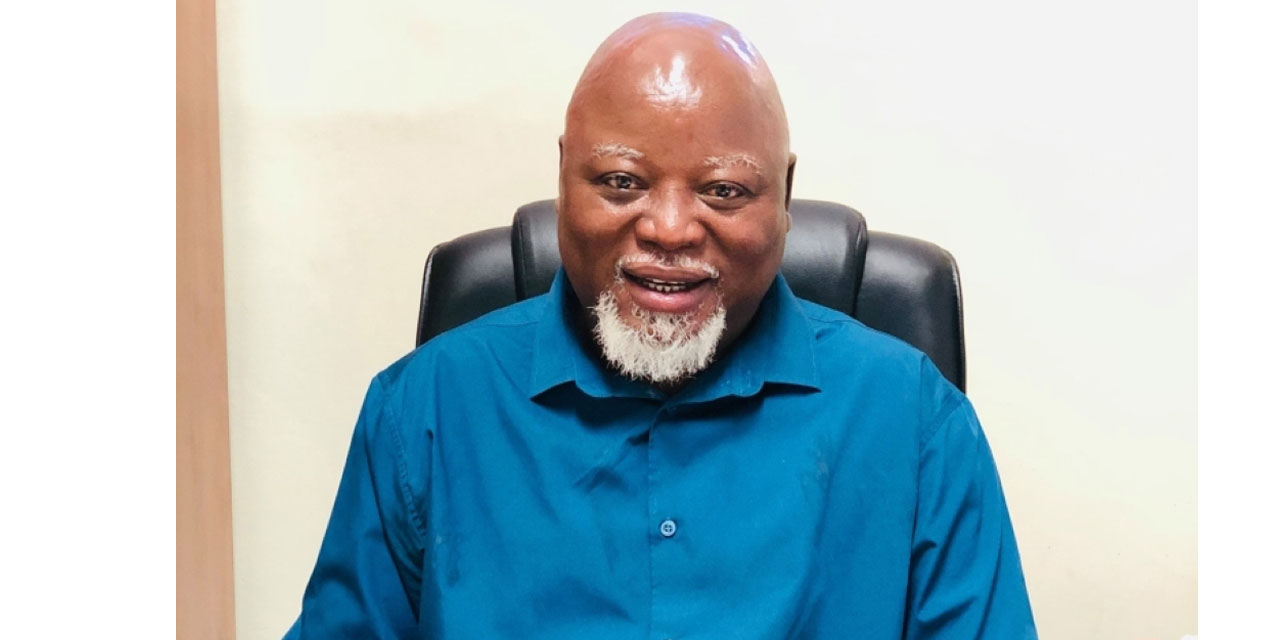The mantra of President-elect Netumbo Nandi-Ndaitwah (NNN) is “business unusual.”
Yours Truly Ideologically, cannot but ask the pertinent and daunting question, as indeed all, including our celebrated policy analysts in their respective orientations, should ask: what is “business unusual,” and unusual from what? What has been the “business as usual” for NNN’s predecessors and their administrations, of which she has been an integral part at every step of the way, in one capacity or another? From which, a la her mantra, is she determined to depart? Is it in terms of the Swapo Party ideological foundation on which all her policies and thus political programmes must and should have been anchored? This ideology and ideological foundation being what? Because apart from political activism, which was rooted in its patriotic and nationalistic manifestations, ridding the country from the yoke of apartheid colonialism, flavoured with socialist ideological rhetoric, there has been little to show for the Swapo Party in terms of ideology.
An ideology entailing a radical transformation of the country after liberation. Meaning changing the economy so that the most deserving, those mostly in need socio-economically, not only benefit, but do so in a meaningful and fundamental way. So that they are not spectators of how the natural resources of their country are tapped on with only a trickle-down effect on the indigenous populations. But the fruits of these resources are directed and managed in a way that fundamentally changes their socio-economic situations.
It is not as if the Swapo Party was or has been oblivious to what the colonisation of Namibia was rooted in. Which is capitalism. As illustrated by the party itself in one of its most basic publications, To Be Born A Nation: The Liberation Struggle for Namibia, published by the party’s Department of Information and Publicity way back in the late 1980s.
“As a colonial power, the South African regime has structured the economy of Namibia according to those foreign interests which it serves: in the first instance, South African-based capital, and where this cannot compete, Western-based monopoly capital. It is also concerned to rake in as great a surplus from its colonial venture for itself as its alliance with foreign capital allows. To these interests, the local settlers are subordinate but useful junior partners in exploitation,” the publication cites Swapo’s 1976 Political Programme in its dissection of Colonial Capitalism in Namibia then. This testifies to Swapo’s early ideological disposition. Whether only in terms of its theoretical and ideological understanding of the dynamics of colonial capitalism. Which certainly underlined and underpinned the quest and drive for liberation, its patriotic overtones and/or undertones, as you wish, notwithstanding.
Then there was little emphasis by the Swapo Party on the post-independence scenario and its reconstruction programme. Reminiscent of and resonating with the African freedom dictum of the time, ala Dr. Kwame Nkrumah’s clarion call of “Seek ye the Political Kingdom first…”
As the party’s own political programme would illustrate:
- “The liberation and winning of independence for the people of Namibia, by all possible means, and the establishment of a democratic people’s government; and
- The realisation of genuine and total independence of Namibia in the spheres of politics, economy, defence, and social and cultural affairs.” This encapsulates the Swapo Party’s 1976 political programmes nationalistic and patriotic preoccupation, as opposed to its ideological rhetoric and/or inclination or belief. A belief that seems to have never found any resonance amongst most, if not all, of its top brass then, and even now and today. Hence the question: what is the party’s trajectory and what has it been that NNN has vowed and pledged to embark upon, like “business unusual”?
Foremost of the resolutions of Swapo at its enlarged Central Committee (CC) meeting in 1976 in carrying out the noble task of national liberation was: “To unite all Namibian people, particularly the working class [perhaps a hint at its ideological inclination if not conviction], the peasantry, and progressive intellectuals, into a vanguard party capable of safeguarding national independence and of building a classless, non-exploitative society based on the ideals and principles of scientific socialism. [Once again affirmation of its ideological inclination if not mere rhetoric then].
Yours Truly Ideologically, I cannot but recall a commotion in the early days of independence when Swapo leaders were reminded, confronted and questioned by a journalist about their socialist pronouncements during the liberation struggle. And if the party still believed in socialism. None, if any, came forward to the defence of their socialist credentials.
There has since been little or no evidence that Swapo still believes in socialism if their political programmes and election manifestos are anything to go by. Even debates from within on socialism, if ever they have been there, seem to have been a closely guarded secret taking place behind closed doors. Even the thinking of Swapo’s brain trust, the Think Tank, remains at best a mystery. Thus, it is not surprising that most policies and political programmes, if not all of them, have been devoid of any ideological outlook bordering on radical socio-economic transformation.
Instead, what seems to have replaced ideology are grandiose rhetorical performatives like Unity, National Reconciliation, Harambee, Namibian House, Omake, and now lately, a dose of “business unusual.” The latter of which the country is likely to continue to be prescribed and administered nothing else but such for the next five years of NNN’s reign. If NNN doesn’t clearly define what “business unusual” is and represents in reality, it will remain meaningless. In the absence of a clear ideology of what “business unusual” represents ideologically, buttressed and backed by action for change in the livelihoods of the masses, “business unusual” shall remain hollow as it sounds.




